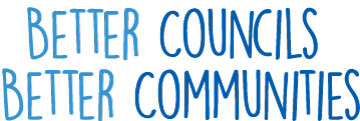Waste
Whose job is waste and recycling?
Councils provide all waste collections to homes, and own and run all of Tasmania's regulated landfills. Communities all around Australia have chosen to recycle, and so councils provide collection or drop off recycling for most people, no matter where they live.
What happens to recycling?
Recycling is a big complex international business, and no one, council or industry, wants to throw away this hard won resource.
Tasmanian councils give the recyclable material they collect to local recycling businesses. Businesses then sort, package and transport the material for processing, and survive by trading recyclable materials on the international market, where the prices go up and down. About 60% of Tasmania's recycling goes direct to Asia for processing, because transport to mainland Australia is more expensive!
Recycling is generally limited to food and drink packaging, and paper and cardboard products. This is because only these companies choose to recycle collected waste materials into new materials for food and drink packaging.
To play your part, please only put recyclable items into the recycling collection. To help more, try first to avoid, reduce, and reuse waste, before recycling - these are better for the environment and cost the community less.
Who pays?
The profits of manufacturing usually go to quite large companies, but the cost of waste collection and disposal is paid for by communities through their rates and tip fees.
In 2000, each Australian household generated about 1 tonne of waste per year, by 2010 this amount had risen to 1.5 tonnes. If you lived in a municipality with 20,000 houses, and waste cost $50 tonne to collect and dispose, the cost to your community would be $1.5 M per year or more, and rising.
As costs and environmental standards go up, more councils are pooling their resources to make large regional landfills and use economies of scale to help cope. Using mechanical compaction helps increase the density of waste, and using large haulage vehicles increases the efficiency and lowers the cost.
Councils pay for all the household recycling collections or recycling drop off services and. recycling does not make councils money, in fact it costs money. It is more expensive to collect and recycle material from Tasmania than say Sydney, and the cost of collecting recycling in Tasmania is about double the value of the collected material.
A hand full of large industries on Australia's east coast perform most of Australia's recycling processing - i.e. melting or breaking down the material and remaking it into something useful again. Most industries do nothing and pay nothing towards recycling, some are actually getting a 'free ride' in your system.

